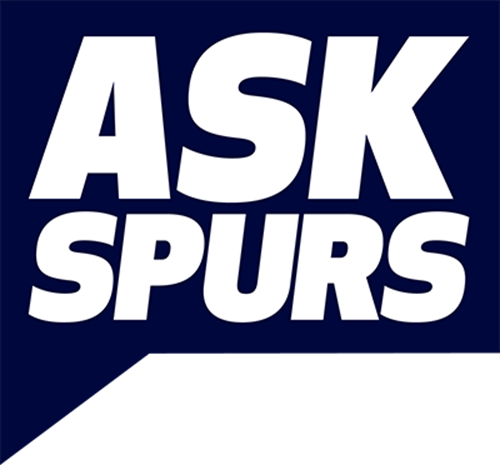

Ange Postecoglou has had a fascinating career in football to date.
From Greece to Australia, to Japan and Scotland, our new Men’s First Team Head Coach boasts a world of experience in the game, and now his journey will continue on here in north London.
Renowned for his passion, clarity and personality, the man born in Greece but raised in Australia has built his career on front-footed football, and that has invariably delivered success.

From his early days at South Melbourne – a Greek-migrant founded club on the southern-most tip of Australia – he has built teams with an aggressive and assertive style of play, high in their press and ones that enjoy the lion’s share of possession.
And that approach has continually steered his coaching in every task he has taken on as he has travelled across the world in pursuit of growth and challenge.
Now, he has a new task on his hands as his journey continues with us here in N17. So, as we welcome the new man to the helm, let's take a look back at his journey in the game so far.

A Greek Odyssey

Ange Postecoglou’s career in football has, literally, been something of an odyssey.
The title of Homer’s 8th century epic poem, a work of literature born in the same homeland of Ange, the Odyssey has become a description for a journey of epic proportions – and there is perhaps no better way to sum up the life of our new man in the hot seat.
Appointed as our new Men’s First Team Head Coach on Tuesday, Ange’s career in football has taken him around the globe - quite literally – as he has put himself through quite the education in the world game.
His journey in life began in Greece back in August, 1965, as he was born in the north of the capital city Athens. The 1960s, however, was an uncertain time for Greece as the country.
After almost 30 years of division in the Mediterranean nation, a right-wing military coup – the Greek junta - took control by force which saw many citizens flee.
That included Ange and his family as, after his father lost his business as the dictatorship took hold, his parents took the brave decision to embark on a voyage to the other side of the world and build a new and better life for themselves in Australia.
Remarkably, it is a journey many Greeks made in the years of turmoil that followed the Second World War – and, with so many Greek nationals upping sticks and moving to a new country, they of course brought their culture and past times down under, including their love of the beautiful game.
With that came the foundations of new local sides in Australia, built at the heart of Greek communities. For Ange and his family, it was South Melbourne FC, and he went onto build a legacy for himself at the Club.

The passionate support of South Melbourne FC
The passionate support of South Melbourne FC
With football something of a refuge for Greek-Australians, who spent their weekends attending games after the hard weeks at work, South Melbourne was a pillar of the community. It was the Club which brought Ange and his father close as they shared an intense love of football – Ange’s love for the game seeing him soak up anything he could about the sport, including compiling collections of magazines, whether they be fictional stories or news and interviews with professionals in the UK, as it was a world that didn’t really exist in Oz.
With such an interest in the game, most notably the tactical element, his passion for coaching quickly emerged.
His managerial instinct was evident early on with a young Ange even coaching his peers at high school before he had even kicked-off his playing career.
A defender by trade and at one point coached by the great Ferenc Puskas, he was of such a high standard in his profession that he went on to play for his country. However, it was the challenge of management that he always longed for.
Having won two titles as a player, helping South Melbourne to their first two NSL Championships (1984 and 1991), the latter as captain, he then guided them to their next two as coach, winning back-to-back titles between 1998 and 1999.
He even led them to the Oceania Club Championship title in 1999 which qualified them for FIFA’s World Club Cup, where they took on Sir Alex Ferguson’s 1999 treble-winning Manchester United.

South Melbourne up against Manchester United at the FIFA Club World Cup in 2000
South Melbourne up against Manchester United at the FIFA Club World Cup in 2000
That was the most successful period in South Melbourne’s history and the club was even named FIFA’s Oceania Club of the Century in recognition of their achievements.
Ange embedded high standards and expectations at the club, but that was largely driven by the Greek supporters who came to matches not just expecting to see their side win, but to win well. And it is that mantra of winning well that formed the basis of Ange’s coaching principles.

Stepping up

After four years at the helm in South Melbourne, it was ambition that took Ange away and onto more national endeavours as he was appointed as the coach of Australia's Under-17s in 2000.
Having made a name for himself with his successes in the NSL, an entirely new challenge waited for the Australian in the national set up.
After four years building and developing a team that he knew so well, he was now tasked with developing youth prospects from across the vast nation.

Ultimately, the Australian spent seven years working for his country's football association, progressing up to coach the Under-20s in the latter years of his tenure. Difficulties were certainly met during that period but it was after departing his national role that Ange encountered perhaps the toughest period in his coaching career to date.
Having gone from the man working miracles at South Melbourne to the frustrations faced with the national team, Ange was at a crossroads in his career.
Following his departure from the Young Socceroos, opportunities in coaching became hard to come by for the Australian but his desire to kick on could never be questioned.
As he sought an opportunity to get back into coaching, it led him to return to his homeland of Greece in 2008 to take charge of FC Panachaiki - a job which provided an entirely new environment, culture and challenge, demonstrating his determination to take on new experiences and learn.
However, that spell in Greece was only brief as he soon returned to Australia where he took on TV work as well as supporting coaching schools as he continued to search for a window back into management.

While it was a difficult period for the Australian, his time out of the game did allow Ange the opportunity to nail down his coaching philosophy so that, when a chance did come his way, he would be ready to hit the ground running - and that is exactly what happened in late 2009.
As it happened, it was a case of being in the right place at the right time for Ange as he bumped into the CEO of the A-League, Archie Fraser, after a TV broadcast at a game in 2009, and he mentioned to Fraser his desire to return to the game.
A few days later, the Brisbane Roar manager Frank Farina was dismissed and that opened the door for Ange to return to football management.

Resurgence

This was the opportunity Ange needed, and it was one he would take in some style.
Almost needing to prove himself as a coach once more, the Australian ventured north up the Gold Coast to Brisbane Roar and headed into the club ready to make wholesale changes.
Having agreed with the owners of the club before taking charge that major alterations and adjustments needed to be made to the squad and personnel, Ange rewrote the script at Lang Park and made history.

Roar supporters show their appreciation of Ange
Roar supporters show their appreciation of Ange
After a difficult first few months as he got to grips with implementing his vision, making seismic changes to the playing staff and changing the style, the results started to come.
Setting out his front-footed approach, a new attacking style came to the Roar; his team played on their own terms and played not just to win games, but also to entertain along the way.
And that saw them dominate come the 2010/11 campaign as Brisbane lost just once that campaign and went 28 games unbeaten - a run lasting from the second month of the season to its final game as they won both the league and the Grand Final.
That unbeaten run was even extended into the next campaign and to a national record of 36 games before defeat to Sydney in the December. They then contrived to lose all bar one of their games that month but, after the turn of year, their form returned as they went onto enjoy a near-perfect run until the end of the season and claim a consecutive Grand Final triumph.

To Victory

At the end of that campaign, and having won all he could with the Roar, Ange decided to return home to Melbourne as he took over as manager of Melbourne Victory ahead of the 2012/13 campaign.
Again, there was significant upheaval when the Australian arrived at the Docklands Stadium as he looked to set out his stall for the new campaign but, once more, success was found.

Ange arrives at Melbourne victory
Ange arrives at Melbourne victory
In the first transfer window alone, 21 players were moved around with 10 arriving while 11 departed, leaving Ange with almost an entirely new squad to work with.
Once more though, that brought about a slow start with three defeats suffered in his first four league games however, with time and patience, he managed to turn the ship around.
After a rocky first month, Ange's ideas and principles started to take effect and, by the time the New Year dawned, Victory had suffered only one other defeat - and it was mid February before another home loss was tasted.
Ultimately, two wins in their final eight games of the regular season saw Victory miss out on a place in the A-League's top two, however they did reach the Grand Finals once more. Unfortunately, they bowed out in the semi-finals with a narrow 1-0 defeat to the Central Coast Mariners.
Yet, despite no silverware in the season, the campaign had once again shown Ange's ability to turn around a team.

Ange shakes supporters hands after his final game in charge
Ange shakes supporters hands after his final game in charge
Into the new campaign, and after taking on Liverpool in front of a crowd of 95,000 at the MCG in the summer, Ange enjoyed an unbeaten start to the campaign. His quality in the technical area was again clear to see and that got heads turning, especially with his nation struggling on the pitch.

Socceroos

In October, 2013, Ange Postecoglou was perhaps presented with one of the greatest honours of his coaching career to date as he was asked to take charge of the Australia national team.
The Socceroos had fallen on hard times as, with their golden generation of the mid-2000s beginning to disband and retire, they were struggling to replace them. And it told in their performances - displays that culminated in consecutive 6-0 defeats, first to Brazil and then to France.
It was capitulation and humiliation on the world stage which could not be allowed to persist so, as Ange's star as a transformative coach continued to rise, Australia placed their hopes in him.

Ange begins life as Australia boss
Ange begins life as Australia boss
Taking charge of his country, the coach took up an all-encompassing role as he set out to rejuvenate his nation.
That included a wide scale squad rebuild, expanding the country's scouting scope to find and test players that had perhaps never even been on the national team's radar.
In his first few years as coach, Ange tested over 45 players in the famous gold and green jersey as part of his rebuild. These were players that he had physically scouted and researched himself before bringing them onboard.
The significant work being put in by Ange was all in aid of achieving two clear goals. Firstly, he wanted Australia to be competitive at the 2014 World Cup - a target which gave him just eight months to transform the the squad and performances . He then wanted to make history for Australia by winning the Asian Cup for the first time.
The first of those goals was made an incredibly tough ask just two months after he took up his new role as, when the World Cup group stage draw was made, Australia were placed in Group B alongside the reigning World Champions Spain, the runners-up from the 2010 World Cup, the Netherlands, and the competition's dark horses, Chile.
Yet, Australia went to the tournament in Brazil and not only surprised their competition, but also the world as they showed their competitive edge. Despite not making it through the group stages, their attractive, front-footed style of play stirred the Australian nation and created some unforgettable moments, such as Tim Cahill's stunning volley against the Dutch.

Their valiant performances in Brazil gave the Socceroos real momentum and it came at the perfect time with the Asian Cup on the horizon. Just six months later, Australia played host to the regional tournament and they had their eyes set on glory.
Their group stage campaign might have got off to the worst possible start as they went behind within eight minutes to Kuwait, but they turned that around and ended up running out 4-1 winners. They even went on to score a tournament high of eight goals in the group stage.
A 2-0 victory over China then followed in the quarter-finals before the UAE was dispatched in the last four to set up a final with South Korea.
The Socceroos dominated in that showpiece and took a deserved lead on the stroke of half-time but were taken to extra-time after a certain Heung-Min Son levelled for Korea Republic.
Yet, with Sonny's nation tiring in the additional 30 minutes, Ange's side secured the title with James Troisi striking just before the interval.
It was a landmark night for Australia and it also secured their place at the 2017 FIFA Confederations Cup - the first time they had qualified for the competition in 12 years.
In the years that followed, Ange also secured Australia qualification for the 2018 World Cup and had lifted them as high as 32nd in FIFA's World rankings before he resigned in November, 2017, as he sought a new challenge.

To Japan

A month later, Ange was appointed as the new Head Coach of Japanese J1 League side Yokohama F. Marinos.
In what was another complete change in culture and environment for the Australian, it provided another chance for him to gain further experience and education as well as challenge himself in a stronger domestic league.

While he adjusted to his new surroundings, getting to grips with a new country and language while he began to mould his squad, it was naturally a slow start to life in Japan for Ange but, of course, he would turn it around.
In his first season, he suffered a mixed bag of results and ultimately led Marinos to 12th in the league however, performances were improving as his style of play was bedded in, and that showed in the J1 League Cup as the Japanese club enjoyed their best run in the competition in 17 years, finishing as runners-up to Shonan Bellmare following a narrow 1-0 defeat in the final.
And, with further tactical changes, came even greater success in his second season in Yokohama.
Despite finishing 12th in his first season, it was a completely transformational second term as his side took the league by storm.

Marinos fans show their adoration for Ange
Marinos fans show their adoration for Ange
Once more, it was a slow start to the campaign as the Marinos built up their rhythm but, once they hit the mid point of the season, there was no stopping them with wins almost a weekly occurrence. That was particularly apparent in their final 11 games as they dropped just two points in their run to the title.
That included a 3-0 win over their nearest rivals on the final day to secure the championship - their first title in 15 years. That title win also secured them a return to the Champions League for the first time in six seasons.

In the middle of that season, Ange had the chance to go head-to-head with Premier League opposition as Manchester City visited Japan for a friendly. Pep Guardiola's side ran out 3-1 winners at the Nissan Stadium but Marinos certainly made known their quality under Postecoglou with his opposite number describing the Japanese side's play as 'incredible'.
After three-and-a-half years, Ange decided to depart Yokohama to take on a new challenge, but what was noticeable was the impact that the Australian had made in Japan. His approach to football was so different to what the country had previously seen that his time there could almost be described as revolutionary. He had an enormous impact on not just the Marinos, but the country as a whole.

Trebling up

After incredible success with the Marinos, Ange Postecoglou's next endeavour took him to Scotland as he became Celtic manager in the summer of 2021.
Having made his mark in Japan with the progression of both Yokohama F Marinos and the J1 League as a whole - it is no surprise that in the last six seasons, four Japanese sides have reached the final of the AFC Champions League, ending a run of nine years without such a team doing so - he was set to embark on an entirely new challenge in Glasgow.

Ange arrives at Celtic Park
Ange arrives at Celtic Park
Taking on a job such as Head Coach of Celtic brings a serious amount of responsibility and pressure - especially considering the below par campaign they had endured in 2020/21 - but it was a task that Ange had prepared for.
While he was a new face in Scotland, he had been preparing for such a role almost his entire life, even from his childhood days where he soaked up all there was to know about English and Scottish football, of managers such as the great Jock Stein as well as the 'Lisbon Lions'.
While he had conducted a significant amount of research and preparation for the task, Ange was certainly not expecting smooth sailing at Parkhead; he knew there would be rocky waters ahead. But, being aware of what was to come, he was ready to take on that challenge.
And he demonstrated that in his first meeting with his new squad. While COVID-19 restrictions were still in place in Scotland as he moved over from Japan, for a short period at the start of his reign he was placed in quarantine, meaning he could only interact with the squad over video calls. As many of us have experienced over the past few years, there can sometimes be difficulties in connecting with people across a digital call but, seemingly not for Ange, as there was an immediate buy-in from his new players.
As he had expected, it was a slow start to the season for the Celts as they lost three of their first six matches but, after a 1-0 defeat to Livingston in September, his Celtic revolution quickly became apparent.
Despite the slow start to the campaign, players and fans alike could see the fresh shoots of progression. That prompted buy-in from the key stakeholders and, with that belief, Ange had the support and trust to kick on.
After that defeat to Livingston, the Bhoys then went on a remarkable run of 32 games unbeaten. That took them all the way until the end of the season and to the league title. And it was a campaign full of incredible performances, including a trio of 6-0 wins as well as a 7-0 triumph.
They also claimed the Scottish League Cup with a victory over Hibernian at Hampden Park in December, 2021 - a final in which they had to come from behind to take what was Ange's first - and pivotal - piece of silverware in Scotland.

Into the 2022/23 season, Celtic then claimed maximum points in each of their first six league games, extending their unbeaten run in the competition to 38 matches, as they made the ideal start to the campaign.
Winning the league title in 2021/22 also saw Celtic make a return to the Champions League group stages, which gave Ange his first taste of managing in European football's elite club competition.

Celtic fans show their appreciation of Ange
Celtic fans show their appreciation of Ange
In September, 2022, there was a slight shock to the system for Ange's Celts as they suffered their first league defeat in 364 days, just one day short of an entire year of going undefeated in Scotland's top flight.
That was seemingly just a blip for his side though as, from that point, they went on another mammoth unbeaten run - 27 games this time - in the league which culminated in a 2-0 win at Hearts where the second successive league title was secured.
Having already lifted the Scottish League Cup in February with a 2-1 win over Rangers at Hampden Park, they then defeated Inverness Caledonian Thistle in the Scottish Cup Final earlier this month to wrap up a remarkable domestic treble. It was the Celts eighth treble in their history - a new world record for a professional club.

In total, Ange claimed five of the six pieces of silverware up for grabs in two incredible years in Glasgow, while also delivering a team of entertainers.

N17 bound

Having achieved all he could domestically in Scotland, a new challenge was needed for Ange and, on Tuesday (6 June), that new venture was confirmed.
Appointed as our new Men's First Team Head Coach earlier this week, Ange put pen to paper on a four year deal with the Club ahead of officially getting started in north London on 1 July.
Set to become the first Australian to ever manage in the Premier League, Ange set out his stall on Friday afternoon (9 June) in his first message to supporters.
Speaking to SPURSPLAY cameras on his first visit to Hotspur Way, our Head Coach expressed his excitement ahead of embarking on his first campaign in England and stepping out at Tottenham Hotspur Stadium for the first time.
Ange also intimated his plans for pre-season and what he hopes to build in his first few months in north London.

"Hi everyone, it’s great to finally get started as the manager of this great football club," he beamed. "I’m really looking forward to our task ahead.
"I think it’s an exciting opportunity for us to now set off in a new direction, play football and create an environment that embodies the values and traditions of this fantastic football club, hopefully a team you can all be proud of and, more importantly, get excited by.
"I can assure you that, right through pre-season, we won’t leave any stone unturned – myself, the staff and the players – to make sure that, when the league comes around, you’ll all be as excited as I am about the season ahead.
"I really look forward to seeing everyone at the stadium, in particular at our first home game, and look forward to the journey ahead."





















